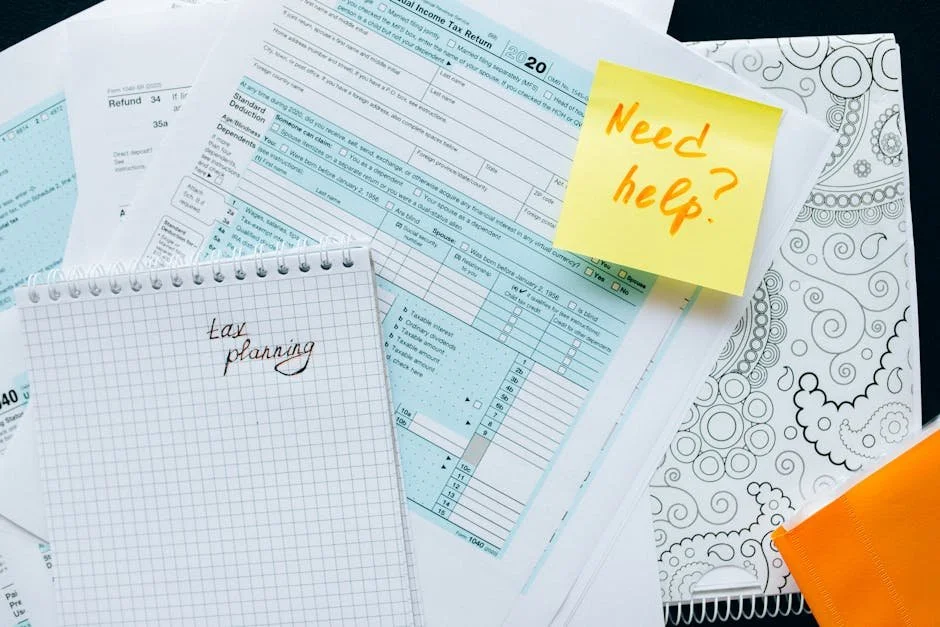8 Reasons Why Tax Planning is Crucial for Your Financial Health
Are you looking to secure your financial future, maximize your savings potential, and achieve long-term financial goals? Tax planning might just be the key. Get ready to discover why understanding and implementing tax planning strategies are essential for your overall financial health.
1. Maximizing Your Savings Potential
When it comes to saving money, tax planning can be a game-changer. By taking advantage of tax-deferred accounts like IRAs and 401(k)s, you can lower your taxable income and increase your savings. Additionally, strategic tax planning allows you to minimize your tax liability, leaving you with more money in your pocket to save and invest for the future.
Moreover, by utilizing tax-efficient investment strategies, such as choosing investments with lower capital gains taxes, you can ensure that more of your investment returns stay in your pocket. With the right tax planning approach, you can watch your savings grow at an accelerated rate.
2. Building a Secure Financial Future
Tax planning plays a vital role in building a secure financial future for yourself and your loved ones. By structuring your finances in a tax-efficient manner, you can safeguard your assets and ensure that your financial legacy remains intact for future generations. Planning ahead and understanding the tax implications of your financial decisions can provide you with the peace of mind that comes with a well-secured financial future.
Furthermore, tax planning allows you to take advantage of tax-advantaged accounts and investment opportunities that can help you grow your wealth over time. By making informed decisions about tax deductions, credits, and other tax-saving strategies, you can pave the way for a financially stable future.
By aligning your financial goals with tax planning strategies, you can set yourself up for long-term success and protect your financial well-being against unexpected challenges. Building a secure financial future starts with effective tax planning.
3. Navigating Tax Laws with Ease
Tax laws can be complex and ever-changing, but with proper tax planning, you can navigate them with ease. Staying informed about tax regulations, deductions, and credits that apply to your situation can help you optimize your tax strategy and minimize your tax burden.
Moreover, working with a tax professional or financial advisor can provide you with valuable insights into tax-efficient strategies tailored to your unique financial circumstances. By understanding the nuances of tax laws and leveraging them to your advantage, you can ensure that you are compliant with regulations while maximizing your tax savings.
4. Achieving Long-Term Financial Goals
Tax planning is not just about saving money in the short term; it's also about achieving your long-term financial goals. By incorporating tax planning into your overall financial strategy, you can align your goals with tax-efficient investment and retirement planning strategies that set you up for success.
Whether you're saving for a home, funding your child's education, or planning for retirement, tax planning can help you reach these milestones faster and with greater financial ease. By optimizing your tax situation today, you can pave the way for a financially secure tomorrow.
5. Ensuring Tax Efficiency
Tax efficiency is a key component of overall financial health. By incorporating tax planning into your financial routine, you can ensure that your investments, savings, and retirement accounts are structured in the most tax-advantageous way possible. This not only maximizes your wealth accumulation but also minimizes the tax implications of your financial decisions.
6. Planning for Retirement Success
Retirement planning and tax planning go hand in hand. By proactively organizing your finances with an eye toward tax efficiency, you can make the most of your retirement savings and create a sustainable income stream for your post-work years. From optimizing your Social Security benefits to strategically withdrawing funds from retirement accounts, tax planning is crucial for ensuring a comfortable and secure retirement.
Moreover, estate planning considerations, such as minimizing estate taxes and planning for inheritance, are essential components of retirement tax planning. By taking a holistic approach to your financial future and considering the tax implications of your retirement decisions, you can enjoy a worry-free retirement that meets your financial objectives.
7. Protecting Your Assets Strategically
Asset protection is a fundamental aspect of tax planning. By structuring your assets and investments in a tax-efficient manner, you can shield your wealth from unnecessary tax exposure and potential liabilities. Additionally, incorporating asset protection strategies into your overall tax plan can safeguard your financial well-being against unforeseen circumstances or legal challenges.
8. Stress-Free Tax Filing
One of the key benefits of effective tax planning is stress-free tax filing. By staying organized throughout the year and implementing tax-saving strategies in advance, you can streamline the tax filing process and avoid last-minute headaches. Whether you choose to work with a tax professional or manage your taxes independently, proper tax planning can make tax season a breeze.
Moreover, by keeping accurate records, maintaining financial documentation, and staying informed about tax deadlines and requirements, you can ensure that your tax filing process is smooth and efficient. Say goodbye to tax-related stress and embrace the peace of mind that comes with proactive tax planning.

